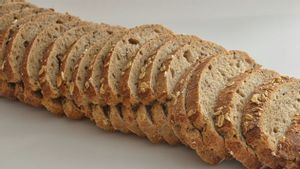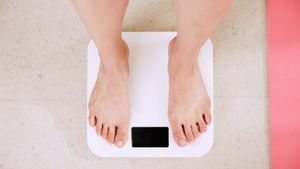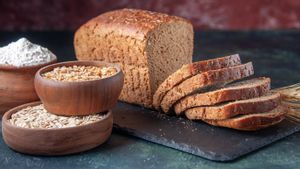YOGYAKARTA Selecting foods containing carbohydrates is important for a healthy diet. But what about eating bread every day? Is the impact always bad? Of course, there are many questions regarding what if the daily carbohydrate needs are only obtained from bread. In Western countries, bread is classified as staple food. But bread made from grains and flour, can meet the needs of folate, iron, fiber, and vitamin B.
Although not always bad, eating bread every day must be watched out for. It is also important to select the ingredients used in making bread. Launching Eating Well, Thursday, July 18, here are the effects of eating bread every day.
Both white and wheat bread, contains the fiber the body needs and is useful for digestion, gut health, and weight management. Several types of bread, including whole wheat 100 percent bread, contain more fiber than white flour dominated bread.
In a whole piece of whole wheat bread contains 2 grams of food fiber. That's about 7 percent of the daily value recommended by the Diet Guidelines for Americans 2020-2025. The whole wheat bread multi-grains can reach 3 grams in one piece. For you in Indonesia, selecting bread ingredients is very important. Choose one made from a whole plate so that the fiber and complexboards are dominant.
All bread, including bread, contains nutrients that can perfect a person's diet. In addition to containing iron, fiber, and vitamin B. The bread also contains protein, calcium, tiamin, manganese, and zinc. White bread is also considered a high source of folate.
Eating foods that are varied is more recommended. Well, if you eat bread every day without being balanced with other foods that meet daily nutritional needs, it will have a negative impact. Eating bread every day and consuming excess, can cause digestive problems. Even if the bread is high fiber, it can still trigger discomfort in the stomach. Such as bloating stomach, full of gas, and cramps.
Eating bread can meet calorie needs, but of course in the right portions and quality bread raw materials. Bread is still a food that contains carbohydrates that can cause a spike in blood sugar. In the case of eating carbohydrate foods, the digestive system converts the food to sugar and then enters the bloodstream. When blood sugar levels increase, the body will release insulin so that cells can absorb blood sugar for energy or storage.
The body digests carbohydrates quickly or slowly and how it affects blood sugar, called the glycemic index. If what is eaten every day is bread with low fiber, the higher the glycemic index. To stabilize blood sugar after eating white bread with a high glycemic index, it is necessary to eat foods with healthy fats or fatless protein. The goal is to slow down digestion and stabilize blood sugar.
SEE ALSO:
Roti is a source of energy. This food gives your body a fast energy from carbohydrates. High fibered bread has a longer effect and energy lasts longer. But after that, the body will feel lethargic. The key is to choose high fibered bread and combine it with foods that slow down digestion in order to give energy longer.
Filling in energy with bread alone is not ideal. The best thing is to eat a variety of foods. Be creative with what you make with bread and how to serve it. For example, make grilled bread with impacted avocados and slice boiled eggs on it," suggested certified dietist Kristi Ruth, RD., LDN.
Through an explanation of the effects of eating bread every day above, although this food is not bad. But it must still make your food menu vary every day in order to get the macronutrition and micronutrition as well as the vitamins and minerals that the body needs on a daily basis.
The English, Chinese, Japanese, Arabic, and French versions are automatically generated by the AI. So there may still be inaccuracies in translating, please always see Indonesian as our main language. (system supported by DigitalSiber.id)


















